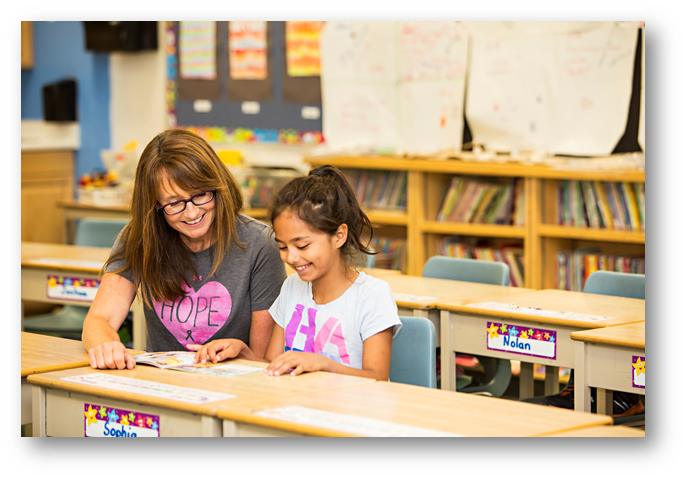We have developed our special education program based on a philosophy of Inclusion. The philosophy is rooted in our Catholic values and is the belief that every child is created in the image of God. It expresses our belief that the learning needs of all students are best served within their local school. Inclusion means that students with exceptional needs fully participate in the activities of the school. Learning takes place in regular classrooms along with other students of the same age group. In our inclusive model, support for your child’s learning is available in your local school.
 What is an IEP?
What is an IEP?
An IEP is a written document detailing the special education program and/or services that may be required by your child. The IEP includes details that enable school staff to develop a comprehensive profile for your child. An IEP builds on your child’s strengths, interests and learning needs and must be supported by relevant assessment information.
The IEP also assists teachers as they continually assess your child’s progress throughout the school year. The written IEP provides a framework for ongoing communication between you and the school regarding your child’s achievements.
Our IEPs reflect our Board’s commitment to providing special education programs and services within the context of our Catholic values, mission and vision. At the school level, the principal is responsible for ensuring the needs of your child, documented in the IEP, are met.
Why does a student have an IEP?
Regulation 181/98 requires that an IEP be developed for every student identified as exceptional by an Identification, Placement and Review Committee (IPRC).
In addition, an IEP may be developed for a student who has not been formally identified as exceptional but who requires a special education program and/or services. In these cases, an IEP is required when:
- the school principal determines that a student’s achievement will be assessed on the basis of modified expectations; and/or
the student regularly requires accommodations for instructional or assessment purposes.
When would an IEP be developed for your child?
There are three main reasons for the development of an IEP:
- Regulation 181/98 requires that an IEP be developed for every student identified as exceptional by an Identification, Placement and Review Committee (IPRC).
- The school principal determines that a student’s achievement will be assessed on the basis of modified expectations; and/or
- The student regularly requires accommodations for instructional or assessment purposes.
Who is involved in developing an IEP at the school?
A team approach is used to meet the diverse needs of our students. Planning a student’s educational program is best accomplished through the combined efforts of, and close communication among, your child, you, the school, the community, and other professionals involved with the student. The IEP provides an opportunity for all those involved with the student to work together to provide a program that will foster achievement and success.
What is your role?
You can provide an invaluable perspective on your child’s personality, development, and learning. Open communication and cooperation between home and school will also ensure that we have similar expectations with respect to your child’s special education program and services.
